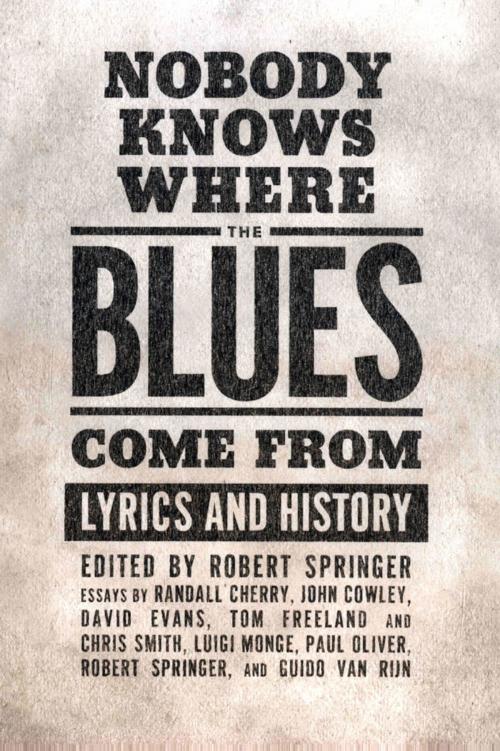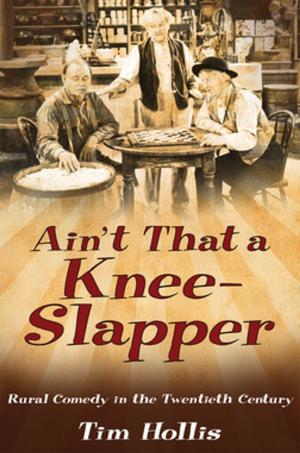Nobody Knows Where the Blues Come From
Lyrics and History
Nonfiction, Entertainment, Music, Music Styles, Jazz & Blues, Blues| Author: | ISBN: | 9781604737318 | |
| Publisher: | University Press of Mississippi | Publication: | June 1, 2007 |
| Imprint: | University Press of Mississippi | Language: | English |
| Author: | |
| ISBN: | 9781604737318 |
| Publisher: | University Press of Mississippi |
| Publication: | June 1, 2007 |
| Imprint: | University Press of Mississippi |
| Language: | English |
Musicians and music scholars rightly focus on the sounds of the blues and the colorful life stories of blues performers. Equally important and, until now, inadequately studied are the lyrics. The international contributors to Nobody Knows Where the Blues Come From explore this aspect of the blues and establish the significance of African American popular song as a neglected form of oral history.
"High Water Everywhere: Blues and Gospel Commentary on the 1927 Mississippi River Flood," by David Evans, is the definitive study of songs about one of the greatest natural disasters in the history of the United States. In "Death by Fire: African American Popular Music on the Natchez Rhythm Club Fire," Luigi Monge analyzes a continuum of songs about exclusively African American tragedy. "Lookin' for the Bully: An Enquiry into a Song and Its Story," by Paul Oliver traces the origins and the many avatars of the Bully song. In "That Dry Creek Eaton Clan: A North Mississippi Murder Ballad of the 1930s," Tom Freeland and Chris Smith study a ballad recorded in 1939 by a black convict at Parchman prison farm. "Coolidge's Blues: African American Blues from the Roaring Twenties" is Guido van Rijn's survey of blues of that decade. Robert Springer's "On the Electronic Trail of Blues Formulas" presents a number of conclusions about the spread of patterns in blues narratives. In "West Indies Blues: An Historical Overview 1920s-1950s," John Cowley turns his attention to West Indian songs produced on the American mainland. Finally, in "Ethel Waters: 'Long, Lean, Lanky Mama,'" Randall Cherry reappraises the early career of this blues and vaudeville singer.
Robert Springer is a professor of English at the University of Metz in Longeville les Metz, France. Among other works, he is the author of Authentic Blues: Its History and Its Themes and the editor of The Lyrics in African American Popular Music.
Musicians and music scholars rightly focus on the sounds of the blues and the colorful life stories of blues performers. Equally important and, until now, inadequately studied are the lyrics. The international contributors to Nobody Knows Where the Blues Come From explore this aspect of the blues and establish the significance of African American popular song as a neglected form of oral history.
"High Water Everywhere: Blues and Gospel Commentary on the 1927 Mississippi River Flood," by David Evans, is the definitive study of songs about one of the greatest natural disasters in the history of the United States. In "Death by Fire: African American Popular Music on the Natchez Rhythm Club Fire," Luigi Monge analyzes a continuum of songs about exclusively African American tragedy. "Lookin' for the Bully: An Enquiry into a Song and Its Story," by Paul Oliver traces the origins and the many avatars of the Bully song. In "That Dry Creek Eaton Clan: A North Mississippi Murder Ballad of the 1930s," Tom Freeland and Chris Smith study a ballad recorded in 1939 by a black convict at Parchman prison farm. "Coolidge's Blues: African American Blues from the Roaring Twenties" is Guido van Rijn's survey of blues of that decade. Robert Springer's "On the Electronic Trail of Blues Formulas" presents a number of conclusions about the spread of patterns in blues narratives. In "West Indies Blues: An Historical Overview 1920s-1950s," John Cowley turns his attention to West Indian songs produced on the American mainland. Finally, in "Ethel Waters: 'Long, Lean, Lanky Mama,'" Randall Cherry reappraises the early career of this blues and vaudeville singer.
Robert Springer is a professor of English at the University of Metz in Longeville les Metz, France. Among other works, he is the author of Authentic Blues: Its History and Its Themes and the editor of The Lyrics in African American Popular Music.















